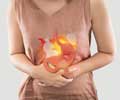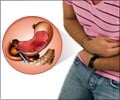Death rates and the need for additional operations following laparoscopic surgery for gastro-oesophageal reflux disease are very low.

‘Antireflux surgery can be considered a safe procedure for gastro-oesophageal reflux disease (GERD), and it might be an underutilized treatment option in selected individuals with documented GERD.’





Among 8947 patients, 90- and 30-day mortality rates were 0.08% and 0.03%, respectively. Only one death (0.01%) was directly surgery-related. The 90-day re-operation rate was 0.4%. The findings demonstrate that laparoscopic surgery offers a remarkably safe alternative to acid reflux drugs.
"One of the main arguments against using antireflux surgery has been that it carries a risk of mortality," said Dr. John Maret-Ouda, author of the British Journal of Surgery study. "However, considering our findings, antireflux surgery can be considered a safe procedure, and it might be an underutilized treatment option in selected individuals with documented gastro-oesophageal reflux disease."
Source-Eurekalert









